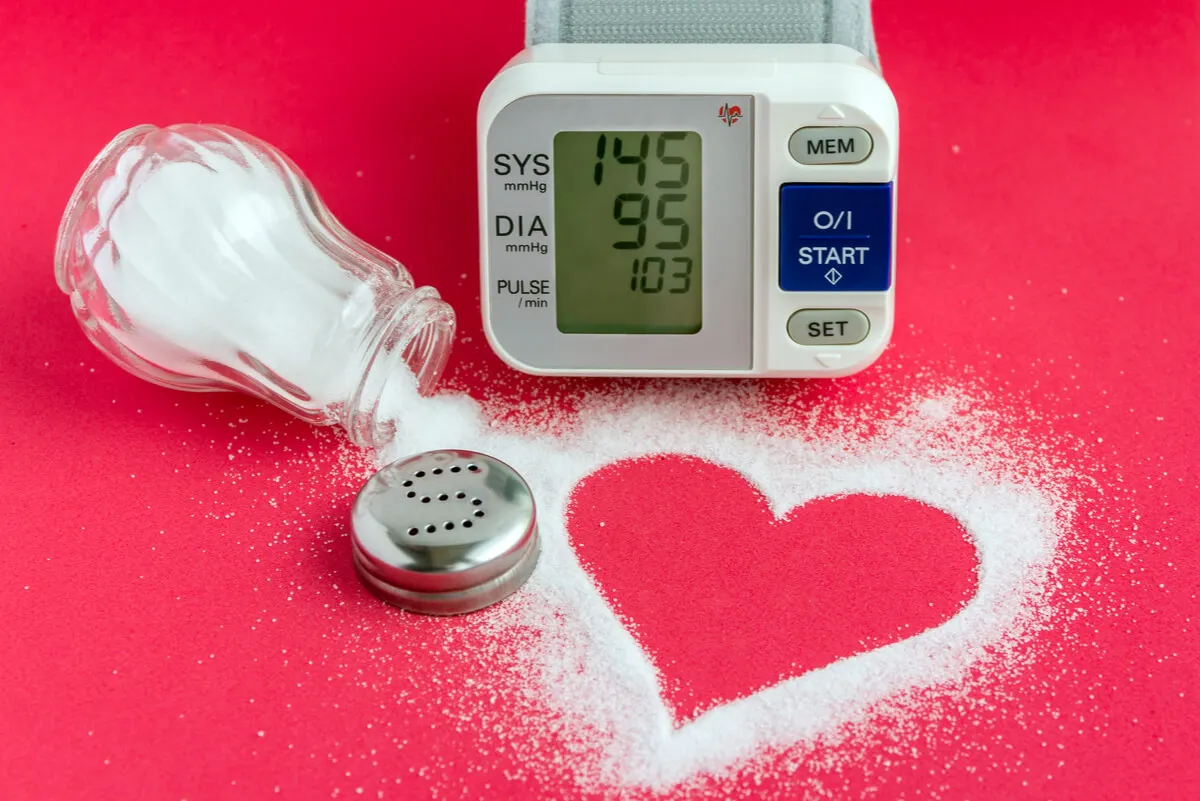Staying Hydrated: The Key to Living Longer?


Reviewed and approved by the doctor Leonardo Biolatto
When it comes to health, one of the main recommendations is to stay hydrated. The body, being composed of approximately 60% water, requires optimal hydration to perform most of its functions properly. In fact, this is linked to a better quality of life and longevity.
This was determined by a recent study published in the journal eBioMedicine, which reported that drinking enough water reduces the risk of chronic diseases, premature aging, and early death. With the participation of 11,255 people, this research reaffirmed the importance of staying hydrated.
“Optimal hydration can slow the aging process in humans”
This is the hypothesis that research conducted by the National Institutes of Health (NIH), published on January 2, 2023 in eBioMedicine, of The Lancet, attempted to prove. The authors analyzed the health data of 11,255 adults, who were followed for a period of 30 years.
In particular, these experts suggest that the health and longevity benefits of hydration are linked to the role of water in controlling serum sodium levels. Sodium increases in the body when fluid intake decreases.
Scientists observed that when sodium is at an above-normal concentration, it increases the likelihood of developing chronic diseases and signs of premature aging. In addition, it was also linked to the risk of dying at an earlier age.
You may be interested in: Diet for Dehydration: What You Should Consider
The data from the study
In a healthy adult, normal serum sodium levels range from 135 to 145 milliequivalents per liter (mEq/L) or millimoles per liter (mmol/L). In the study, most participants were within this range.
Even so, the researchers observed that those with serum sodium levels above 144 mmol/L had a 21% greater risk of dying younger and a 50% greater chance of premature aging compared to those with levels between 137 to 142 mEq/L.
In addition, those with serum sodium levels above 142 mEq/L exhibited a 10% to 15% risk of being biologically older than their chronological age. For this, several markers were taken into account, such as metabolic and cardiovascular health, lung function and inflammation.
Thus, it was also reported that adults with serum sodium levels above 142 mEq/L had up to 64% higher risk of developing chronic diseases, such as the following:
- Diabetes
- Dementia
- Heart failure
- Peripheral artery disease
- Strokes
- Chronic lung disease
Regarding these results, Natalia Dmitrieva, study author and researcher at the Laboratory of Cardiovascular Regenerative Medicine at the National Heart, Lung, and Blood University (NHLBI), which is part of the NIH, expressed the following in a press release:
The results suggest that adequate hydration can delay aging and prolong a disease-free life. People whose serum sodium is 142 mEq/L or more would benefit from an evaluation of their fluid intake.

The limitations of the research
It’s true that staying hydrated is essential for taking care of one’s health and ensuring optimal functioning of the body’s major systems. And while this has been proven by past studies, the findings of this recent research don’t prove a causal effect.
In other words, the study, as such, doesn’t demonstrate that optimal hydration prevents the development of chronic diseases or increases longevity. This remains merely a hypothesis.
In fact, one of the main limitations is that there was no control over what fluids the participants drank or what their hydration status was at times outside of serum sodium measurement.
The researchers determined that further intervention studies are needed to confirm the link between hydration and aging.
Thus, these findings shouldn’t be taken lightly and caution should be maintained regarding water intake and hydration. It should be remembered that excessive fluid intake also has negative consequences, such as the development of hyponatremia.
Staying hydrated is key to well-being
The relationship between optimal hydration status and control of serum sodium levels requires further investigation. However, the fact remains that intake of water and healthy beverages does play a role in a number of health markers.
As compiled by the Centers for Disease Control and Prevention (CDC), water plays a role in a variety of functions:
- Joint lubrication
- Body temperature regulation
- Protection of the spinal cord and other sensitive tissues
- Elimination of waste through urination, perspiration and bowel movements
It’s also key to cardiovascular health, hormone balance, vitamin and mineral transport, among other relevant bodily processes. Dehydration increases the risk of chronic diseases and is linked to complications of pre-existing diseases.
How much water should you drink per day?
To date, there is debate about the optimal amount of water a person should drink. For a long time, it was established that drinking 8 glasses of water a day, every day, was adequate to ensure hydration of the body. However, this measure has changed over the years.
In this sense, entities such as the National Academy of Medicine suggest an intake of about 2.7 liters of liquids for women and 3.7 liters for men. This recommendation takes into account the consumption of water as well as liquids obtained from vegetables, fruits, soups, and teas, among other healthy beverages.
However, it’s necessary to consider that the adequate amount of liquids isn’t the same for everyone. This may vary according to age, sex, pregnancy or breastfeeding status, body composition, level of physical activity, and lifestyle. Even the climate or temperature of the environment must be taken into account.

Read also: The Consequences of Dehydration
Staying hydrated improves quality of life
For now, several hypotheses suggest that staying hydrated may have an impact on preventing premature aging, decreasing mortality as well as preventing chronic diseases. The most recent study suggests that this is because it may help regulate serum sodium levels, high levels of which are linked to declining health.
And while more evidence is needed to corroborate this relationship, what is clear is that daily fluid intake is critical to overall health. Some symptoms, such as a constant feeling of thirst, fatigue, urine that is too yellow and has a strong odor, and dry, cracked lips, can alert us to a state of dehydration.
If this is the case, it’s advisable to increase fluid intake, but without exceeding the recommended amount. At the other extreme, overhydration causes a severe decrease in the concentration of sodium in the blood, which is also potentially dangerous.
All cited sources were thoroughly reviewed by our team to ensure their quality, reliability, currency, and validity. The bibliography of this article was considered reliable and of academic or scientific accuracy.
- Brinkman JE, Dorius B, Sharma S. Physiology, Body Fluids. [Updated 2022 May 8]. In: StatPearls [Internet]. Treasure Island (FL): StatPearls Publishing; 2022 Jan-. Available from: https://www.ncbi.nlm.nih.gov/books/NBK482447/
- Manz F, Wentz A. The importance of good hydration for the prevention of chronic diseases. Nutr Rev. 2005 Jun;63(6 Pt 2):S2-5. doi: 10.1111/j.1753-4887.2005.tb00150.x. PMID: 16028566.
- Nakamura Y, Watanabe H, Tanaka A, Yasui M, Nishihira J, Murayama N. Effect of Increased Daily Water Intake and Hydration on Health in Japanese Adults. Nutrients. 2020 Apr 23;12(4):1191. doi: 10.3390/nu12041191. PMID: 32340375; PMCID: PMC7231288.
- Popkin BM, D’Anci KE, Rosenberg IH. Water, hydration, and health. Nutr Rev. 2010 Aug;68(8):439-58. doi: 10.1111/j.1753-4887.2010.00304.x. PMID: 20646222; PMCID: PMC2908954.
- Stookey, J. D., & Kavouras, S. A. (2020). Water Researchers Do Not Have a Strategic Plan for Gathering Evidence to Inform Water Intake Recommendations to Prevent Chronic Disease. In Nutrients (Vol. 12, Issue 11, p. 3359). MDPI AG. https://doi.org/10.3390/nu12113359
- The National Academy of Sciences. Dietary References Intakes for Water, Potassium, Sodium, Chloride, and Sulfate. Available in https://www.nationalacademies.org/news/2004/02/report-sets-dietary-intake-levels-for-water-salt-and-potassium-to-maintain-health-and-reduce-chronic-disease-risk
-
Zhou HL, Wei MH, Cui Y, Di DS, Song WJ, Zhang RY, Liu JA, Wang Q. Association Between Water Intake and Mortality Risk-Evidence From a National Prospective Study. Front Nutr. 2022 Apr 12;9:822119. doi: 10.3389/fnut.2022.822119. PMID: 35495952; PMCID: PMC9039539.
This text is provided for informational purposes only and does not replace consultation with a professional. If in doubt, consult your specialist.








